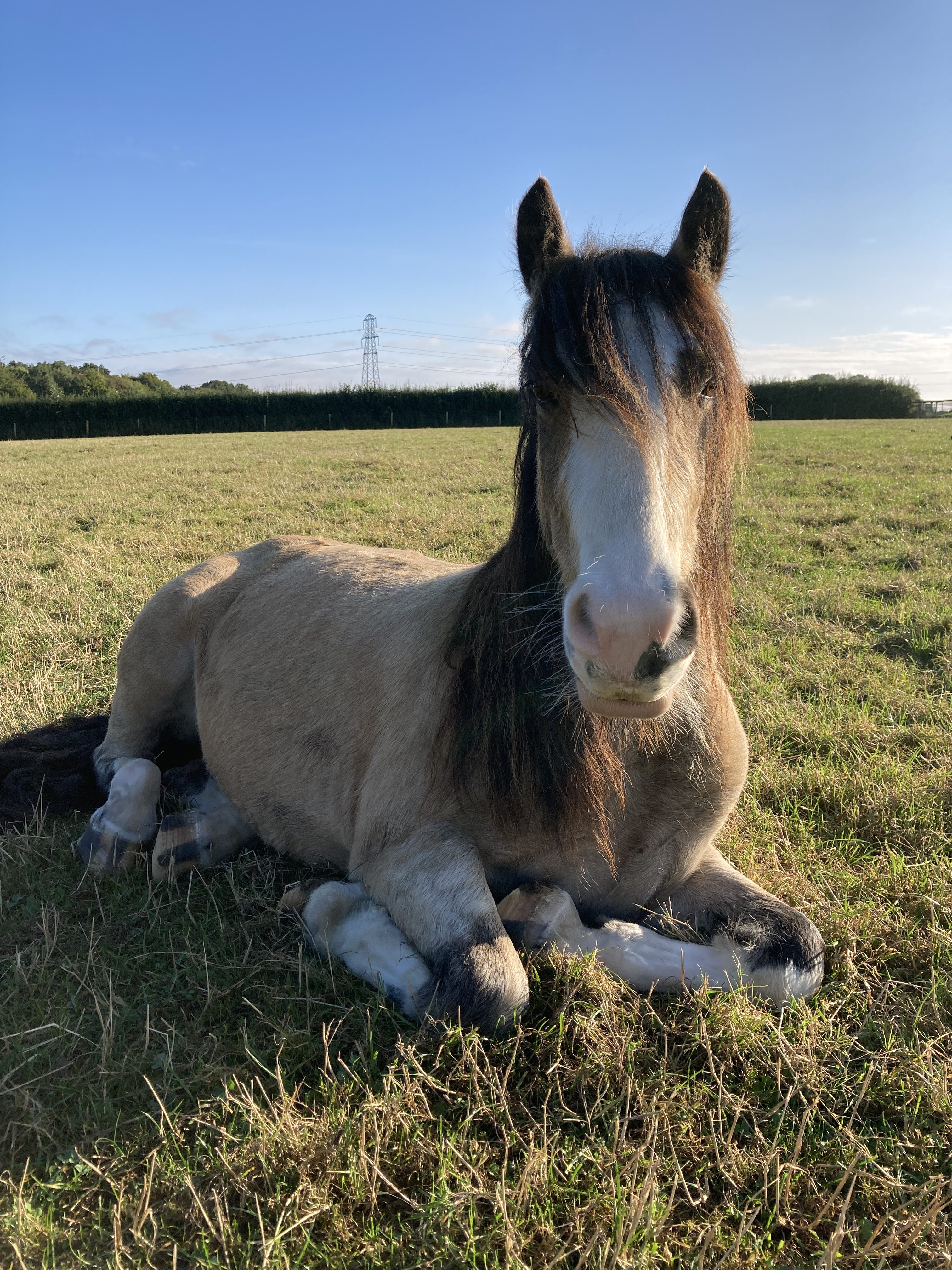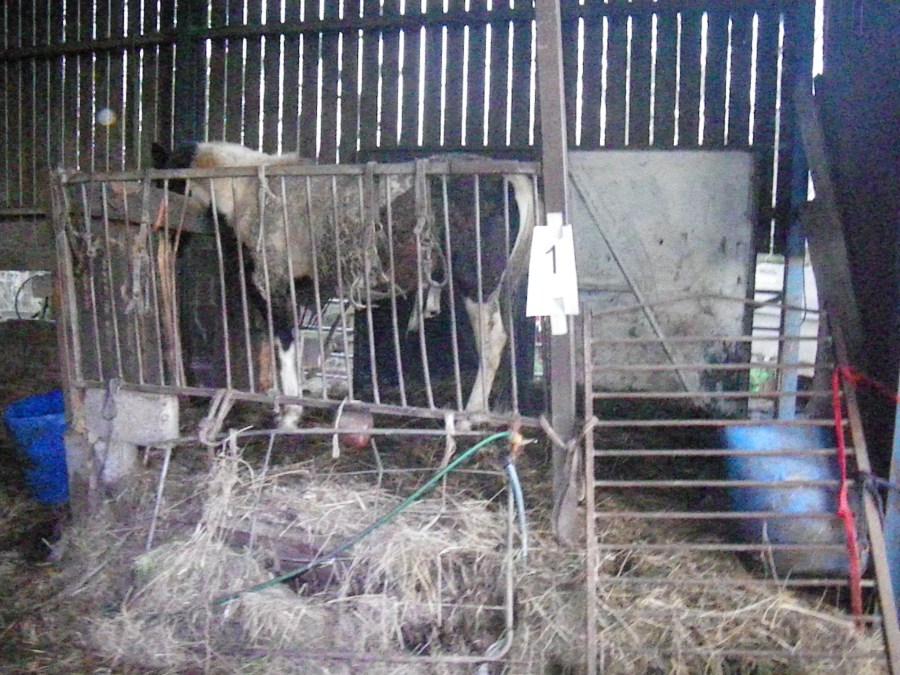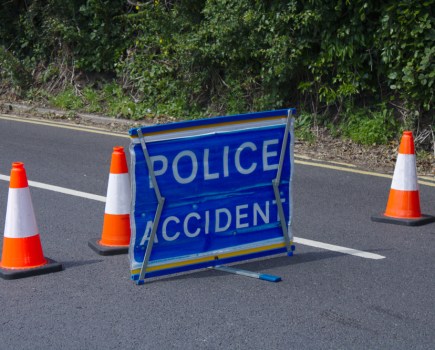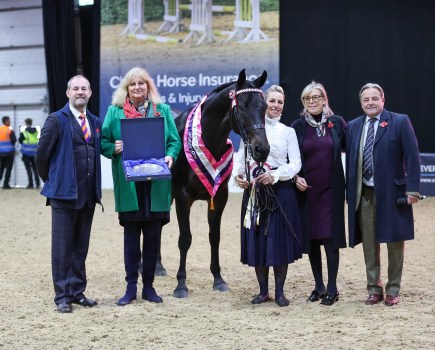A woman who failed to care for more than 130 animals has been handed a suspended prison sentence and lifetime animal ban after she lost her appeal, following “one of the biggest animal welfare operations ever in the UK”.
Christine June Kelly, 61, of Portsmouth Road, Ripley, Surrey appealed her sentence after she was found guilty of 15 offences under the Animal Welfare Act following a trial over dates in June and August in 2022.
Kelly was found guilty of failing to meet the needs of 131 equines after not providing a suitable environment, including a water supply, adequate nutrition, routine dental or farrier care, or adequate parasitic treatment or control. She was also convicted of causing unnecessary suffering to a number of horses, dogs and goats.
Kelly had claimed throughout the investigation that she was not responsible for all of the animals who were found on-site and subsequently launched an appeal. The appeal hearing took eight days at Guildford Crown Court between Monday 12 June and Tuesday 20 June. On Friday 23 June her appeal was dismissed by a judge.
She was sentenced to six months of prison – suspended for two years (this was on each charge to run concurrently) and was disqualified from keeping all animals for life – which can not be appealed for 10 years. She was ordered to pay a victim surcharge of £122 and a deprivation order of the remaining animals in charity care was made – which means they can now be rehomed.
Standing in 2-3ft of waste and faeces
Surrey Police executed a warrant at a farm in Ripley, Surrey, on 9 January 2019 as part of an RSPCA-led investigation into concerns for the welfare of horses at the site. Guildford Borough Council, Bucks and Surrey Trading Standards, Bransby Horses, Redwings, The Horse Trust, The Donkey Sanctuary, World Horse Welfare, Dogs Trust and a number of vets assisted on the day. Rescuers discovered horses, dogs and farm animals living in poor conditions.
Huge herds of ponies, many riddled with worms, were living out in fields with hazardous metal and broken fencing sticking up from the thick mud. Inside two barns were pens full of donkeys, goats and ponies; many of them standing on top of 2-3ft of waste and faeces. Many were underweight and had untreated health conditions.
Dozens of dogs, some heavily pregnant and others with puppies in tow, were found chained and tethered on the yard, while others were shut inside cramped cages or makeshift kennels.
A total of 204 animals were discovered at the site. While three, two horses and one goat, were put to sleep at the scene, the rest (201) were taken into charity care, including 129 horses and donkeys, 59 dogs, five goats, four chickens, three alpacas and one duck. Some of the most unwell animals needed immediate veterinary care while others were taken for treatment nearby, and those that were considered fit to travel by on-site vets were transferred to Bransby Horses, Redwings, The Horse Trust, The Donkey Sanctuary, World Horse Welfare and RSPCA centres for care and rehabilitation.
Despite urgent veterinary treatment, 14 horses who were weak, emaciated, had serious worm burdens and were suffering from cyathostominosis, died or were put down on veterinary advice. Despite the charities’ best efforts to save them, two dogs and one goat also had to be put to sleep on vet advice, and one chicken and one duck also died. Twenty foals were subsequently born in charity care – although two were stillborn – as well as six goat kids; one alpaca; and nine puppies, although two sadly died shortly after birth.
RSPCA special operations unit case officer Kirsty Withnall coordinated the rescue mission and led the investigation.
“More than 100 people from different agencies spent more than 12 hours assessing the animals, rounding them up and moving them to vets and rescue centres. It’s one of the biggest animal welfare operations ever in the UK,” she said. “We had no idea what the conditions would be like until we stepped through the gates but we had a plan in place that would allow us to remove a large number of animals on the day, although we hoped that wouldn’t be necessary. But we were left shocked at the conditions these poor animals had been kept in.”
‘Heartbreaking’

The Horse Trust team were devastated to lose Arthur. Credit: The Horse Trust
The Horse Trust focused on the most unwell horses, as the closest equine charity to the premises.
“Many of those horses were taken directly by us to a leading equine hospital for intensive treatment, even with this treatment some of those didn’t make it,” said Jeanette Allen, chief executive officer at The Horse Trust. “Those that did pull through continue to receive ongoing treatment for underlying medical issues, secure for life at our Home of Rest.”
One of the horses was Arthur (pictured above) who was only months old and very weak.
“The Horse Trust team spent hours working at Arthur’s pace to change his perception of people,” said a spokesperson from the charity. “Quite soon he started to show signs of wobblers, a condition which caused him to struggle with coordination. Initially Arthur coped well with bespoke care and even babysat young new admissions that joined the charity; but sadly this winter his condition deteriorated and he struggled to cope. The team were all heartbroken that this incredibly sweet pony’s journey ended at such a young age and after such a difficult start.”
Tony Tyler, deputy chief executive of World Horse Welfare, said no one knew exactly what to expect when they entered the “long-running and complex situation”, as access to the site had been refused.
“The large number of animals involved and the state they were being kept in was shocking to the officers attending but all the agencies involved worked together incredibly well and were able to pool resources and concentrate on their areas of expertise, meaning that animals could be taken off site quickly and start receiving proper care,” he said.
Bert (pictured top and below) was rescued from one of the barns where he was found in a small pen standing on top of 2ft-3ft of months worth of waste and faeces. He was rescued and moved to Redwings.
“Bert was originally taken to the RSPCA as part of the initial rescue, but was brought to Redwings when it became clear he had ongoing veterinary requirements,” said Nic de Brauwere, Redwings head of welfare and behaviour. “Bert has some quite severe lameness issues in his front legs which mean he is not suitable for riding or rehoming. However, with medication and careful management under the close eye of Redwings vets he has been living a very quiet life with his new best friend Bellamy at one of the charity’s special care sites.”

Bert has found sanctuary. Credit: Redwings Horse Sanctuary
‘One of the lucky ones’
Emma Carter, executive director of equine welfare at Bransby Horses said the horses involved in the case had been some of the most challenging they had ever had to care for.
“Due to the extent of their medical and behavioural needs as a result of their neglect, some have had, and will continue to require, years of specialist care,” she said.
“Thankfully Tarbert’s story is different, he is one of the lucky ones. Following the rescue, we nursed his mother Tamar back to health so Tarbert was born a healthy and happy foal just two months later. He is now a much loved character who enjoys the affection of our team and cantering around the fields at Bransby Horses. His reality would have been bleak had we all not been able to act.”
Donkeys Heidi, Max, Lady (pictured below), Mars and Karen were taken in by The Donkey Sanctuary, in East Devon. They were nervous and distrustful of people; some were extremely underweight and had severely overgrown hooves. One of the mares soon gave birth to a foal and, slowly, all of them started to trust again and are now thriving.
“Working on the front line of donkey welfare, our teams are often exposed to situations where donkeys are in desperate need of our help,” said Hannah Bryer, head of welfare at The Donkey Sanctuary. “Cases like this are never easy but the scale of suffering and the numbers of animals in this case was particularly distressing.
“I will never forget the overwhelming feeling of sadness that I felt walking into that barn and seeing the condition of the donkeys and other animals. It was a huge challenge, but everyone worked together brilliantly in difficult conditions.
“Thanks to the amazing care of our teams, the donkeys are enjoying healthy and enriched lives. Knowing they will never experience such suffering again and will remain safe in the care of The Donkey Sanctuary is the best outcome.”

Lady following her rescue. Credit: The Donkey Sanctuary
A Dogs Trust Spokesperson added: “More than 50 dogs were removed from the site and Dogs Trust staff were on hand to ensure that they were safely retrieved and transported with care to RSPCA premises in our specially equipped Animal Ambulances. The health and welfare of dogs is always our priority, and we were pleased to assist on this occasion to safely recover the dogs involved.”
PC Hollie Iribar from Surrey Police said: “As one of the rural and wildlife crime officers for Surrey Police, I have witnessed some horrific acts of animal cruelty over the years. This was one of the most upsetting cases I’ve been a part of, the sites of that day and the following investigation will never leave me. I am grateful to the RSPCA and our other partner agencies for the hard work we all put in to bring this case to trial.”
Lead image by Redwings Horse Sanctuary
Receive six issues of Your Horse magazine for just £15!










